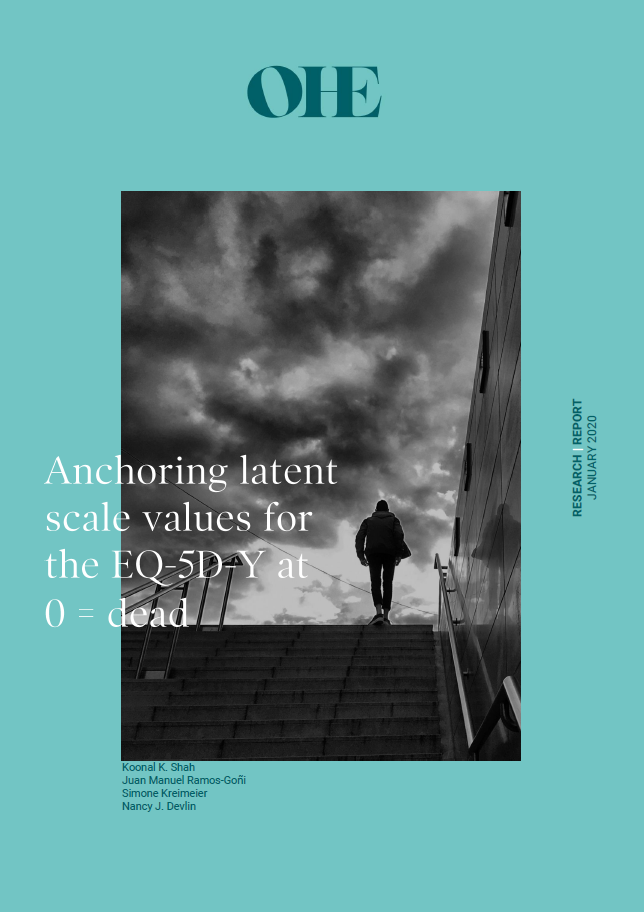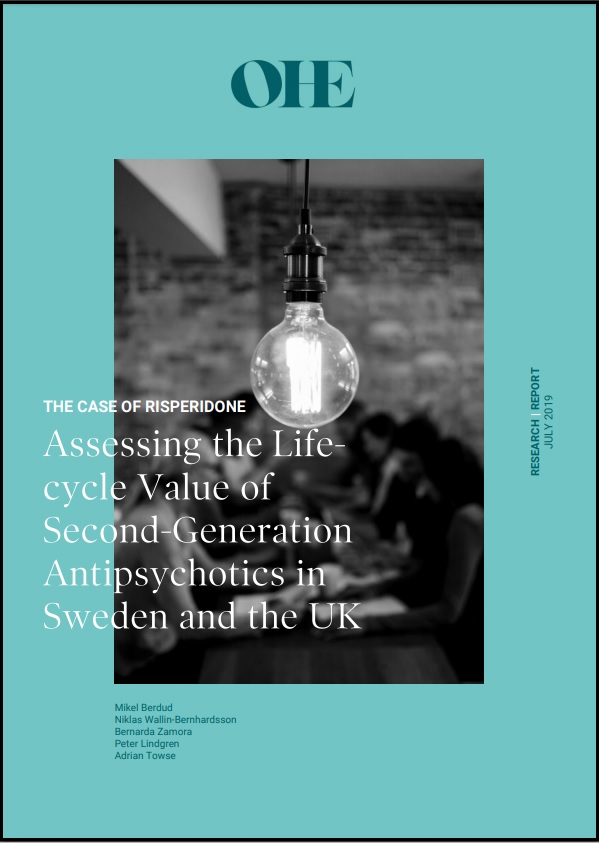Anchoring Latent Scale Values for the EQ-5D-Y at 0 = Dead


OHE, Curtin and KCL have been awarded a research grant from the EuroQol Research Foundation to compare the EQ-5D-3L and EQ-5D-5L instruments in cancer patients.
OHE, in collaboration with Curtin University and King’s College London, has been awarded a research grant from the EuroQol Research Foundation to compare the sensitivity and responsiveness of the EQ-5D-3L and EQ-5D-5L instruments in a large cohort of cancer patients.
The existence of important dissimilarities between EQ-5D-3L and the newer EQ-5D-5L, in terms of both the health profiles and preference-based values, is a key topic in current research. As NICE has clearly stated in a recent document, “(…) further research is needed to explore the impact of adopting the EQ-5D-5L valuation set”. There is limited research that compares patient reported 3L and 5L profiles in the area of cancer, one of the leading causes of morbidity and mortality globally, the treatments for which are often evaluated in HTA decisions.
The project will analyse data from Cancer 2015, a large-scale longitudinal genomic cancer cohort study in Victoria, Australia. Cancer 2015 enrols newly diagnosed, treatment naïve cancer patients, who are then asked to complete quality-of-life questionnaires at baseline, and at various follow-up points.
The richness and uniqueness of this dataset will be exploited to explore:
The research team includes: Richard Norman (Curtin University) who was involved in developing 3L and 5L tariffs for Australia; Mark Pennington (King’s College London) who has experience analysing patient data from the UK DoH PROMs programme; Paula Lorgelly (OHE) who was a CI on the initial Cancer 2015 grant and has analysed the dataset previously to understand patient-reported outcomes; and Patricia Cubi-Mollá experienced in empirically analysing outcome measures.
This project will offer a unique understanding of the sensitivity and responsiveness of the EQ-5D-3L and 5L in a cohort of cancer patients. It will use a variety of robust statistical analyses to control for potential confounding factors when comparing the responses of patients over time to the 3L instrument and the 5L instrument. It will provide much needed evidence to support (or not) the wider promotion of the 5L to researchers, industry and HTA agencies.
For more information please contact Patricia Cubi-Molla at OHE.
An error has occurred, please try again later.
This website uses cookies so that we can provide you with the best user experience possible. Cookie information is stored in your browser and performs functions such as recognising you when you return to our website and helping our team to understand which sections of the website you find most interesting and useful.
Strictly Necessary Cookie should be enabled at all times so that we can save your preferences for cookie settings.
If you disable this cookie, we will not be able to save your preferences. This means that every time you visit this website you will need to enable or disable cookies again.
This website uses Google Analytics to collect anonymous information such as the number of visitors to the site, and the most popular pages.
Keeping this cookie enabled helps us to improve our website.
Please enable Strictly Necessary Cookies first so that we can save your preferences!